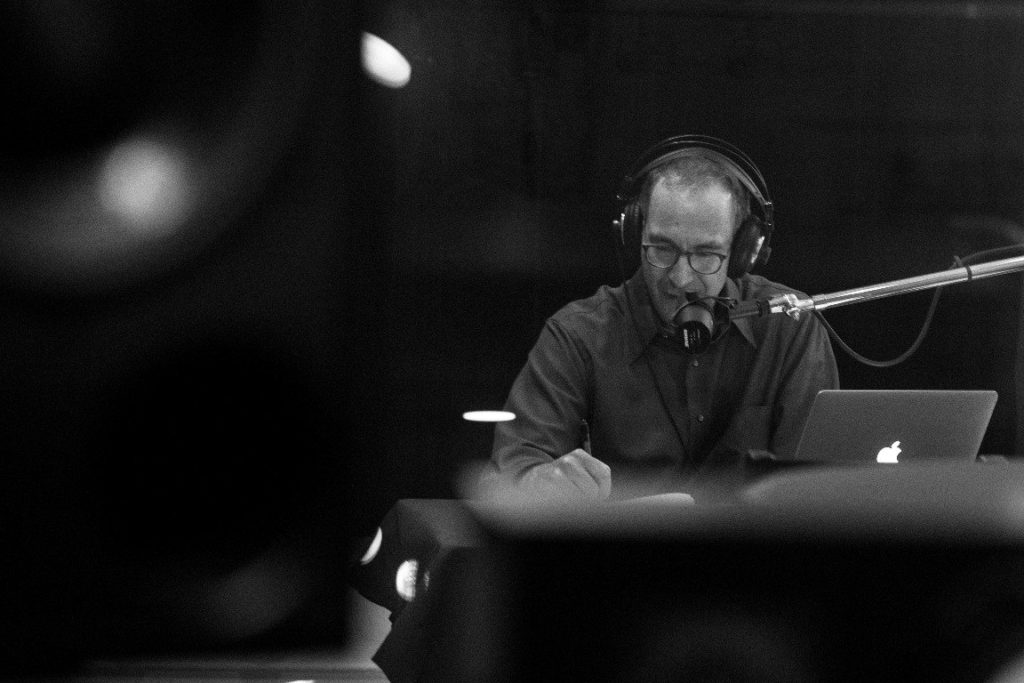Podcast
LISTEN: Becoming a High-Road Employment Model With Managed by Q’s Dan Teran
Dan Teran, co-founder and CEO of the office services provider, explains on the latest episode of “The Bottom Line” podcast how the company’s success is leading more companies to invest in their workers.

When Dan Teran launched Managed by Q in 2014, there was one business model that most every technology startup looked to emulate—holding down the cost of labor. Not him.
“At a time when a lot of my peers were looking at companies like Uber for inspiration, we actually . . . picked up the phone and reached out to some folks at Starbucks and companies like Trader Joe’s, the Four Seasons that have invested in their workers,” Teran, Managed by Q’s co-founder and CEO, told me on the latest episode of my podcast, The Bottom Line.
What was particularly notable was that Managed by Q was trying to do this in an industry infamous for generating bad jobs—office cleaners, handymen, and so on.
Managed by Q’s hypothesis was that by treating its employees well (and, yes, they’re all employees, not contractors or temps), turnover would be far lower—and engagement and job performance far higher—than that of most of its competitors. And that, in turn, would lead to high customer satisfaction and retention.
Managed by Q thus pays above minimum wage, offers ample job training, and provides its front-line workers with the same health insurance, retirement, and stock-option programs that those in the executive ranks enjoy.
“Plenty of people,” Teran recalls, “told us we were anything ranging from crazy to stupid.”
Flash forward four years, and Managed by Q doesn’t look so crazy anymore. The company, which today employs about 1,000 people, has expanded from its home base of New York into four other cities. More than 7,000 office locations—from relatively small facilities to full corporate campuses—can now access the company’s platform.
Last fall, Managed by Q announced that its core services business had become profitable. Meanwhile, it continues to augment an online marketplace showcasing hundreds of local vendors that also meet high employment standards, and it is busily building out new lines of business, such as a staffing agency for office managers. Teran says that the entire enterprise is on track to be in the black “in the next two years.”
But perhaps what’s most remarkable is that Managed by Q is now becoming a model for other entrepreneurs. “I have heard from some investors . . . that people are positioning themselves as the Managed by Q for X,” Teran says. “That brings me great joy.”
At the same time, other office-cleaning services in Mexico, Brazil, and Germany are also following Managed by Q’s approach of being a high-road employer. Teran notes that the founders of those companies have reached out to him to say “that they were grateful we paved the way because they wouldn’t have been able to raise money if we didn’t have a positive story.”
Others also find themselves drawn to what Managed by Q is doing. Software engineers, product designers, and other talented individuals from companies like Uber have flocked to Managed by Q, according to Teran, because they believe that it’s not only a promising company from a financial standpoint, but one that is transforming traditionally low-wage jobs into solid careers.
“I couldn’t have told you this when we started the business, but one of our secret weapons in attracting some of the best minds . . . is the fact that people want to increasingly put their values to work,” Teran says. “If they see there’s an opportunity to be in a . . . fast-paced environment and also create really positive outcomes for the world, they wouldn’t have it any other way.”
As for Teran, he wouldn’t have it any other way, either. He credits taking part in social justice activities in the Catholic Church when he was growing up with exposing him to those who are less fortunate. Then again, channeling this spirit into a cleaning company wouldn’t have necessarily been the most obvious choice.
“My mother,” says Teran, “would be the first to tell you that I was not the most hygienic child.”
You can listen to my entire interview with Teran here, along with Molly Nugent reporting on the blueprint used by Managed by Q—The Good Jobs Strategy by MIT professor Zeynep Ton—and Natalie Foster exploring why the basic income experiment underway in Stockton, Calif., is so significant.
The Bottom Line is a production of Capital & Main.
-

 State of InequalityApril 4, 2024
State of InequalityApril 4, 2024No, the New Minimum Wage Won’t Wreck the Fast Food Industry or the Economy
-

 State of InequalityApril 18, 2024
State of InequalityApril 18, 2024Critical Audit of California’s Efforts to Reduce Homelessness Has Silver Linings
-

 State of InequalityMarch 21, 2024
State of InequalityMarch 21, 2024Nurses Union Says State Watchdog Does Not Adequately Investigate Staffing Crisis
-

 Latest NewsApril 5, 2024
Latest NewsApril 5, 2024Economist Michael Reich on Why California Fast-Food Wages Can Rise Without Job Losses and Higher Prices
-

 California UncoveredApril 19, 2024
California UncoveredApril 19, 2024Los Angeles’ Black Churches Join National Effort to Support Dementia Patients and Their Families
-

 Latest NewsMarch 22, 2024
Latest NewsMarch 22, 2024In Georgia, a Basic Income Program’s Success With Black Women Adds to Growing National Interest
-

 Latest NewsApril 8, 2024
Latest NewsApril 8, 2024Report: Banks Should Set Stricter Climate Goals for Agriculture Clients
-

 Striking BackMarch 25, 2024
Striking BackMarch 25, 2024Unionizing Planned Parenthood




















